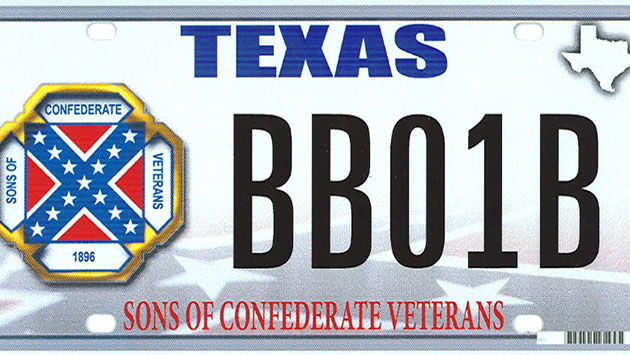
Texas Department of Motor Vehicles/AP
The Supreme Court on Thursday upheld the right of the state of Texas to reject a specialty license plate featuring a Confederate flag. The case featured an unusual alliance in which Justice Clarence Thomas, known for his rigid ideological conservatism, teamed up with the court’s four liberal justices in a 5-4 majority.
The central issue in this case was whether a message displayed on a license plate is personal speech or government speech.
A Texas board had denied a request by the state chapter of the Sons of Confederate Veterans for a license plate that displayed the group’s name, founding date, and the Confederate flag. The state of Texas argued that license plates are government speech, so the state has the right to censor it. The Sons of Confederate Veterans claimed the plates are private speech, and that the government’s decision not to approve its license plate request was discrimination based on viewpoint and a violation of its free-speech rights.
While the government can’t engage in viewpoint discrimination of private speech, “[w]hen government speaks, it is not barred by the Free Speech Clause from determining the content of what it says,” Justice Stephen Breyer’s majority opinion states. “Texas license plates are, essentially, government IDs. And issuers of ID ‘typically do not permit’ the placement on their IDs of ‘message[s] with which they do not wish to be associated.'”
The four dissenting justices argued that the majority “passes off private speech as government speech and, in doing so, establishes a precedent that threatens private speech that government finds displeasing.”
Although Texas is now free to deny the Sons of Confederate Veterans a license plate with a Confederate flag, some state governments still embrace the controversial Civil War symbol. In South Carolina, where a shooting Wednesday night in a historic black church left nine people dead, the Confederate flag still flies on state capitol grounds.
















